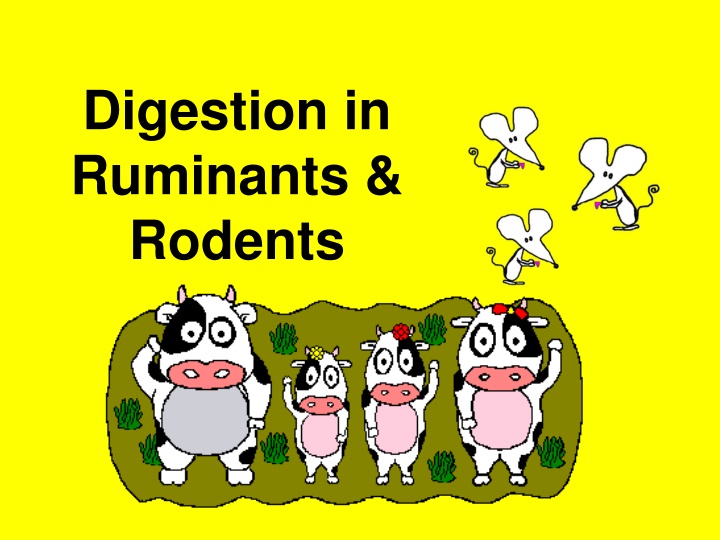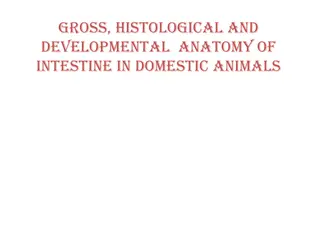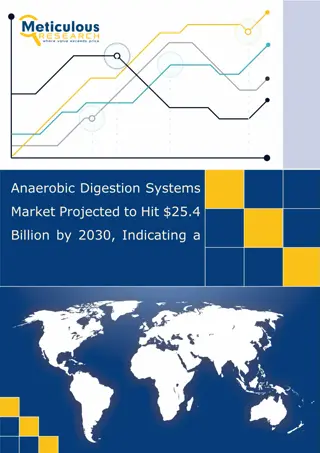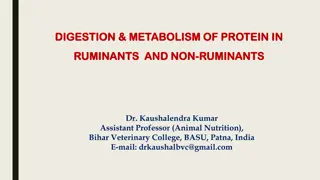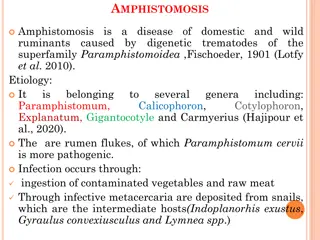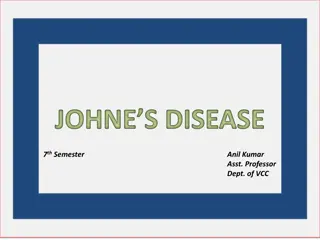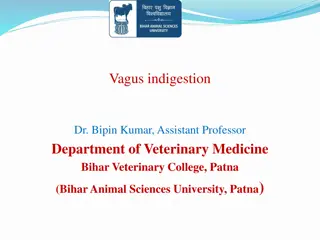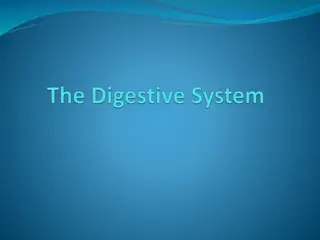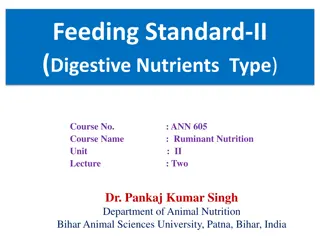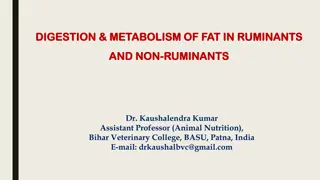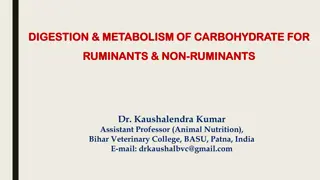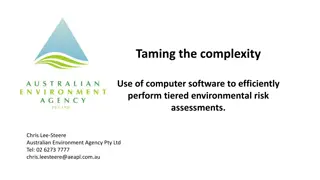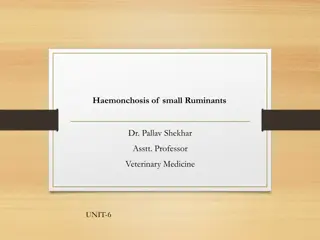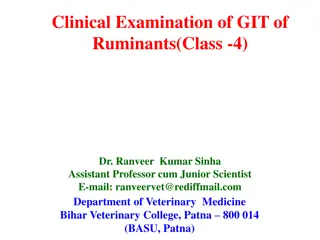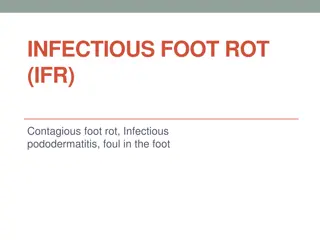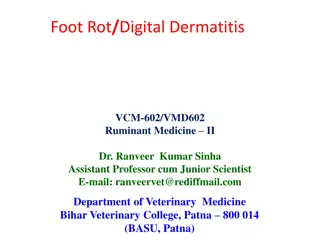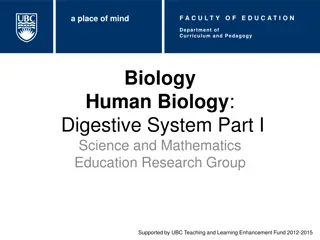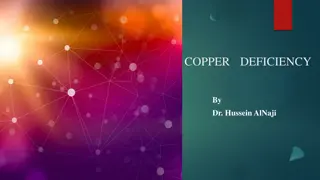Digestion in Ruminants & Rodents
Unique digestive systems of herbivorous ruminants like cows and rodents such as rabbits and rats. Discover how ruminants process cellulose and rely on specialized adaptations for digestion, including the importance of bacteria in the rumen and reticulum. Dive into the fascinating world of plant material digestion in these animals.
Download Presentation

Please find below an Image/Link to download the presentation.
The content on the website is provided AS IS for your information and personal use only. It may not be sold, licensed, or shared on other websites without obtaining consent from the author.If you encounter any issues during the download, it is possible that the publisher has removed the file from their server.
You are allowed to download the files provided on this website for personal or commercial use, subject to the condition that they are used lawfully. All files are the property of their respective owners.
The content on the website is provided AS IS for your information and personal use only. It may not be sold, licensed, or shared on other websites without obtaining consent from the author.
E N D
Presentation Transcript
Digestion in Ruminants & Rodents
Ruminants Herbivore mammals Eg. Cow, goat, giraffe, deer Feed on plant - cellulose
Rodents.. Rabbits and rats family
Digestive System of Ruminants Feed on plant cellulose Need cellulase to digest it But ruminants do not produce cellulase However their digestive system are specially adapted to carry out cellulose digestion
Ruminants.. Has a stomach with 4 chambers: 1. rumen 2. reticulum 3. omasum 4. abomasum Carry out rumination process of regurgitating food and rechewing it
Ruminants.. the saliva of a cow contains no salivary amylase To digest the plant material, herbivores need to depend on the cellulase-secreting microorganism in its digestive system
Ruminants.. Rumen - first & largest compartment - contain bacteria that produced cellulase for the cellulose digestion - function as the fermentation chamber
Ruminants.. Reticulum - also contains bacteria for digestion - content of reticulum called cud - regurgitation occurs - has a honeycomb wall
Ruminants.. Omasum - reswallowed cud will be sent here - large particle are broken down by peristalsis - water is removed
Ruminants.. Abomasum - true stomach of the ruminants - gastric juice containing digestive enzymes - HCl and pepsin
Flow of food in ruminant chyme abomasum mouth swallow - H2O omasum oesophagus swallow curd rumen mouth reticulum fermentation regurgitation
reticulum omasum rumen abomasum
Digestive System of Rodents Their caecum and appendix are enlarged to store the cellulase producing bacteria Food pass the alimentary canal twice - first as food - then as soft faeces
Soft and watery faeces usually produced at night Eaten again Pass out as hard and dry faeces during the day
Flow of food in rodents Re-eat the faeces to absorb more nutrient mouth swallow oesophagus anus stomach Small intestine caecum Digest cellulose
Eaten again? Why?? to enable the animals to absorb the products of bacterial breakdown allow rodent to recover the nutrients initially lost with the faeces
Eaten again? Why?? nutrient is absorb in the small intestine but in rats, the microorganism that help to digest cellulose is in the caecum, the food must pass the small intestine before entering the caecum So the faeces eliminate is actually soft and rich in nutrient That s why they have to re-eat the faeces in order to absorb all the nutrients
This powerpoint was kindly donated to www.worldofteaching.com http://www.worldofteaching.com is home to over a thousand powerpoints submitted by teachers. This is a completely free site and requires no registration. Please visit and I hope it will help in your teaching.
